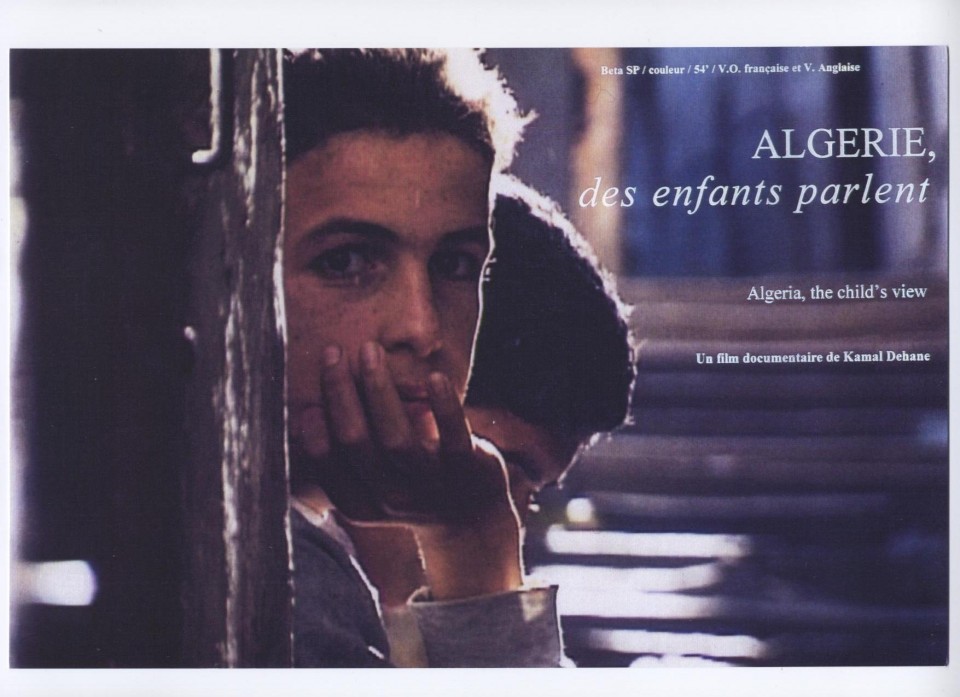-
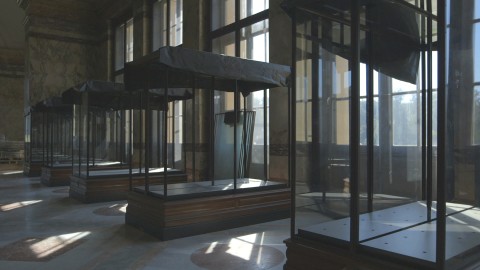
Totems and Taboos
67 / 53 / 2018
Daniel Cattier
An impressive palace, the Royal Museum for Central Africa in Brussels. Now renovated, it has been renamed the Africa Museum.A voice out of Africa echoes throughout its halls...It tells us of the colonial origins of this Museum. Today, it is time to open up to the restitution of that heritage.A restitution to museums in the DRC, in Senegal, etc.It's time for reconciliation with the past. Credits Director : Daniel Cattier Image : Julien Lambert Image drone : Thomas Wilsky Sound : Jean-Luc Fichefet - Olivier Ronval - Cédric Demollin Editor : Simon Arazi Animation : Frederik Palmaers - Michael Palmaers - Amir Borenstein Sound editing and mix : Jean-Luc Fichefet Colour grading : Paul Millot Deliveries : Sherpah Video Project Production and Partners Production : Simple Production Coproduction : RTBF - Canvas - Arte G.E.I.E - CBA - Africa Museum Partners : Centre du…
-
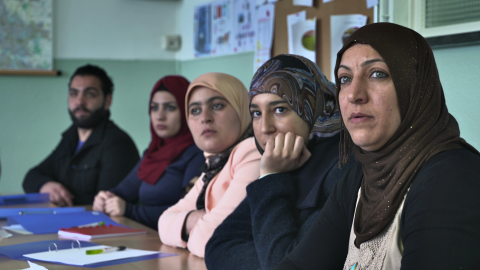
Integration Inch'Allah
59' / 2016
Pablo Muñoz Gomez
They just arrived in Belgium. New immigrants from Syria, Irak, Morocco... who will have to participate in a mandatory integration program in Flanders, called « inburgering ». To obtain their certificate, they will have to learn the habits and customs from Flanders and Belgium. The film follows these people, with humor and kindness, throughout their journey. Credits Director : Pablo Muñoz Gomez Author : Pablo Muñoz Gomez Image : Erika Meda Sound : Maarten Leemans Sound & image editing : Matthieu Jamet Mix : Rainier Buidin Music : Alexander L'Estrange and Ben Parry © Audio Network Graphics and titling : Sonia Bonvoisin Color grading : We electric Production and partners A co-production Simple Production, RTBF - Unité documentaire, Voo and Be tv, Wallonie Image Production. Produced with the support of Centre du Cinéma et de l'Audiovisuel de la Fédération…
-
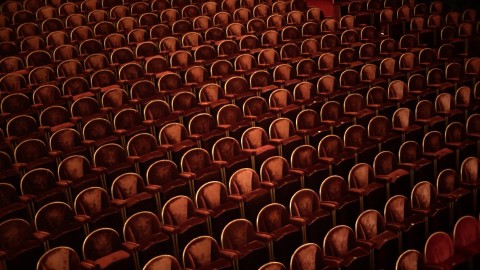
L'âme de la Monnaie
52' / 9 / 2016
Frédéric Laffont
Frankie in front of the mock-up of "Daphné", Lydie struggling with the hem of a costume from "Jenufa", Kornell discussing with his double bass in the pit, Gina on the make-up of "Rigoletto", Stefano in the prison of Forest to make the prisoners sing, André manufacturing boots of forthcoming soldiers of "Shell Shok", Christine vacuuming in the Grand Hall, a young painter editing a greek polystyrene tempel for "Orphée", and the ones from the canteen ant from accountancy also... Around 500 people and nearly as many professions. From shoes to wigs, from scenery to lighting : at La Monnaie, everything is home-made. Here, we sing, we create, we discuss in dutch, french, english, german, italian, russian, japanese, polish, spanish... At 3 o'clock, the soloist of the two 'casts' of "Jenufa" are ill. The artistic planning immediately finds an Austrian singer ready to sing at 8 o'clock the…
-
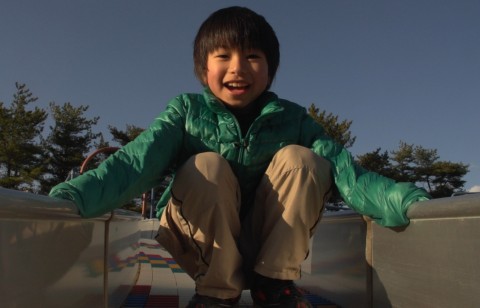
Welcome to Fukushima
59'35'' / 2013
Alain de Halleux
One year spent in the daily life of some Japanese families in Minamisoma, at 20 km from the damaged Fukushima Daiichi nuclear power plant. After efforts of decontamination, scientific uncertainties, hesitations of the authorities, who should we trust ? Should we stay? Should we leave? Each family is facing its own decisions alone. The director tells the 'after-the-event' so that the children will later remember. But the threats are weighing on the current status of the nuclear power plant. The families suitcases and petrol cans are ready in order to leave as quickly as possible if a new earthquake or tsunami would occur. Fiche Technique Author and director : Alain de Halleux Image : Alain de Halleux Sound : Alain de Halleux et Kyle Drubek Editing : Alain de Halleux et Ismaël Joffroy Chandoutis Music : Michel Berckmans Production and Partners Production : Simple…
-
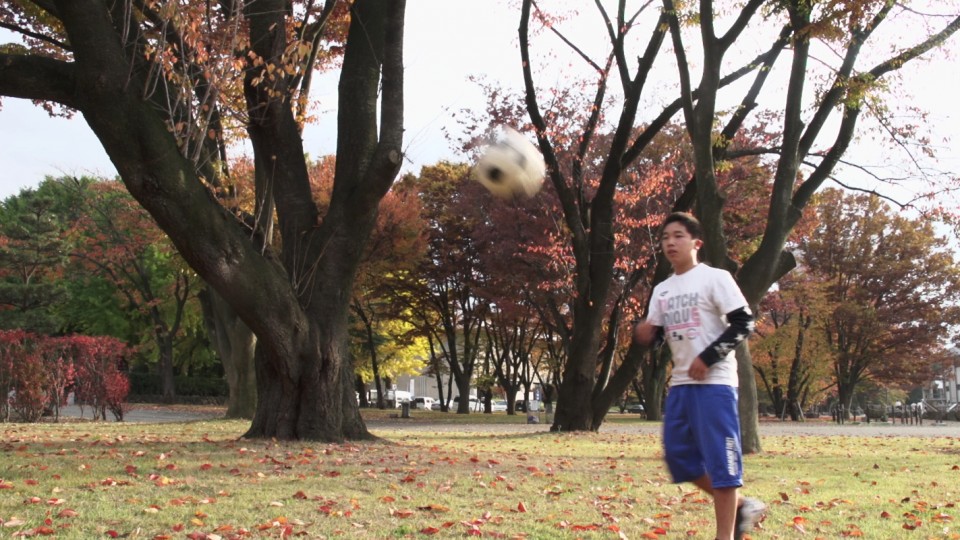
Stories from Fukushima
8x8' / 2012
Alain de Halleux
8 episodes x 8' THE MAN WHO PROTECTS THE TREES A STRANGE MICROBE MADE IN FUKUSHIMA THE OCTOPUS FUKUSHIMA, THE ISLAND OF HAPPINESS THE BIG QUESTION THE CHALLENGE THE LAST CHANCE Today at Fukushima, the Japanese people are currently facing with an invisible enemy: radioactivity which is endangering the future of this region and of this country. The population is standing up and is expressing its despair and its anger. While meeting the families, Alain de Halleux gives the word at those ordinary Japaneses confronted with an astonishing situation : meetings revealing fears, hopes, major upheavals experienced by those parents and children. Keeping away from Fukushima, verily leaving Japan, measuring radioactivity from its environment and its food, trying to obtain reliable information from which taking a decision commits the whole family... many questions and challenges to…
-
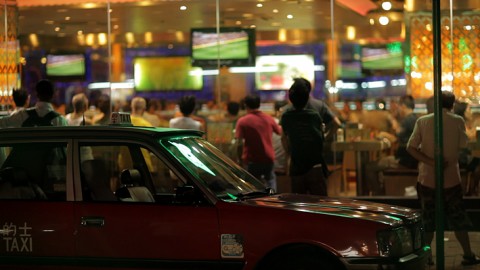
It's a Bet! Sports and Gambling
52' / 2012
Hervé Martin Delpierre
From Macao to London, Geneva and Shanghai, this dectective story into a hermetic and secret world investigates what is bound to become a scandal of international proportions. 2011 has marked a revolution in the worlds of both amateur and professional sports. The legalization of internet betting in Europe is going to generate a yearly income of 500 billions euros. That's more than drug trafficking. Based on a system that is similar to the stock exchange, sport betting is exploding with the global flow of money. It is all about major profits and the hope of easy cash in the privacy of one's living room. But for a few to win big... many have to loose. What about sports itself ? Suspicion of cheating is already poisoning international competitions and legal trials in Belgium and Germany are multiplying. No sport, no athlete is left unscathed. The question has to be asked : Will…
-
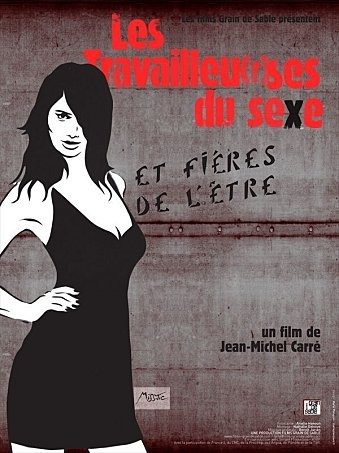
Les Travailleu(r)ses du Sexe
82' / 2009
Jean-Michel Carré
Considered the oldest job in the world, prostitution has always remained an “obscure object of hate and desire”. Since, what is known as Sarkozy law was passed in 2003, both women and men have claimed the right to freely sell their bodies. At the same time, the Market economy is using pseudo sexual liberation to justify the legalisation of this intimate market place. Words and disturbing habits, stigmatised by moralising judgements, make us think about men and women relationship, sexuality and its control over power. Credits Scriptwriter and Director : Jean-Michel Carré Image : Jean-Michel Carré Sound :Basile Carré-Agostini Editor : Nathalie Delvoye Sound mixing : Henry Michiels Production and Partners Production : Les Films Grain De Sable - Simple production - RTBF Partners : Avec la participation de France 2, du CNC et du Centre du Cinéma et de…
-
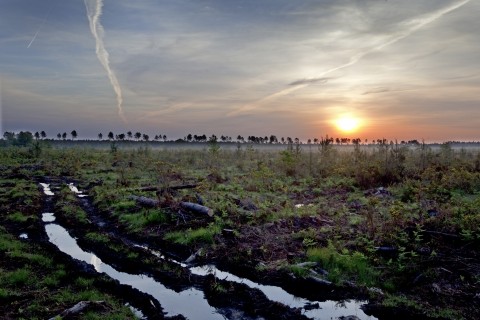
Ghislain Libart, the lumberman
55' / 2009
Manu Riche
Ghislain Libart, the Lumberman : This lumberman from the Ardennes is aiming for the skies with his trees. On the surface he is practicing a traditional, old-fashioned profession, but he has developed his timber yard into a multinational company. Libart exports European pine to China, cuts French oak in Egypt and fells expensive wenge in Congo and SierraLeone. Trees have become ‘big business’ which Ghislain Libart knows more than anybody else. Large companies anywhere in the world cannot forego on wood so they need him. Though an extraordinarily booming business, not even the timber trade escaped the global crisis : the globalisation of our economy, made tangible by one of our own lumbermen. Credits Producer : Manu Riche Script : Manu Riche Image : Renaat Lambeets, Jean-François Boucher, Johan Stoefs & Didier Hill-Derive Sound : Luc Cuveele & Dan Van Bever Editor :…
-
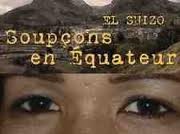
El Suizo, Suspicion in Equator
57' et / 2008
Raymond Vouillamoz et David Rihs
Gilbert Dufour, a young Swiss expatriated in Equator, shows all the signs of a professional and familial success. In May 2006, his life changes radically. He is accused by the police of Quito of having murdered his wife Mirka, who died a week before this blame. The film narrates the descent into hell. Dragged off to the Equatorial jails and in front of the media of the country, the man proclaims his innocence. Finally, released and exonerated, he lives nowadays in Switzerland with his three children. After Eighteen months, he spills the beans. Credits Directors : Raymond Vouillamoz - David Rihs Image : Olivier Auverlau - Phillipe Mory Sound : Leon Felipe Troya - Benedetto Garro Editor : Christine Hoffet Sound editor : Pascale Schaer Sound mixing : Michel Goossen Voice-over : David Rihs Production and Partners Production : Simple Production - Pointprod - TSR -…
-
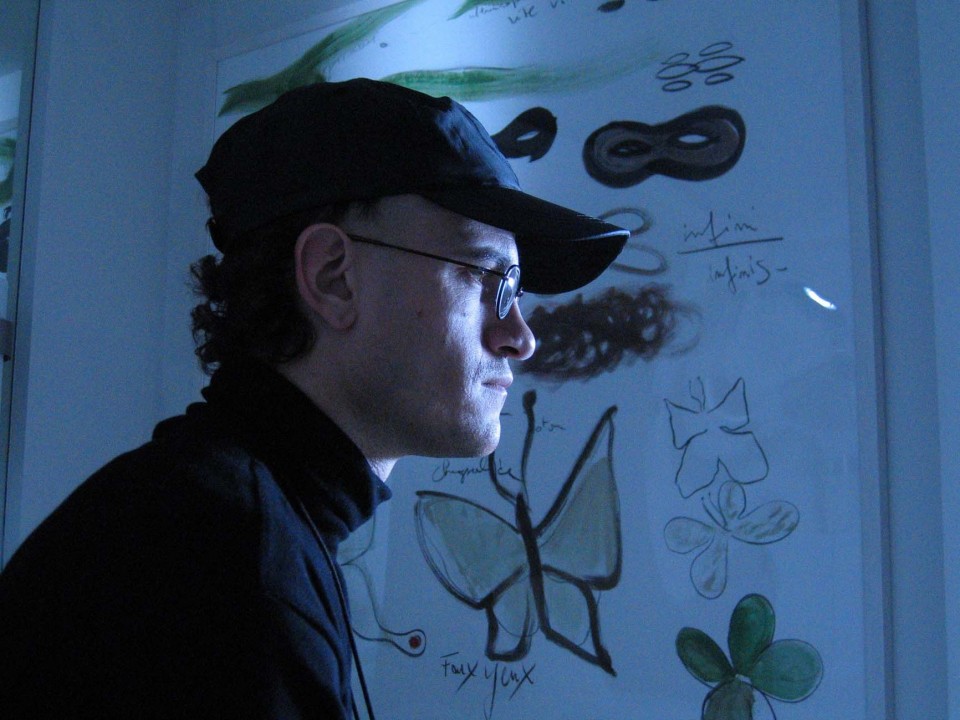
The Brainwasher
48' / 2006
Jean-Pierre Gras
The film is a portrait of a complex and outstanding person. A 31 year-old-man, who is a real chameleon, slides into the skin of a 15 year-old-teenager in order to go back to school. What is his real aim? The mystery of Frédéric Bourdin, which he is shaping patiently since fifteen years as a challenge launched towards society, is at the time pathetic and fascinating. Credits Author and Director : Christophe D’Antonio Image : Christophe Petit Sound: Denis Lepeut Editor : Tina Baz Music : Pierre Gillet Production and Partners Production : Cinétévé - Simple Production Partners : RTL TVI, Planète, France 3, TSR Participation : CNC Broadcasters TV : RTL TVI and France 3 Distribution Cinétévé Dvd Original version : French and English
-
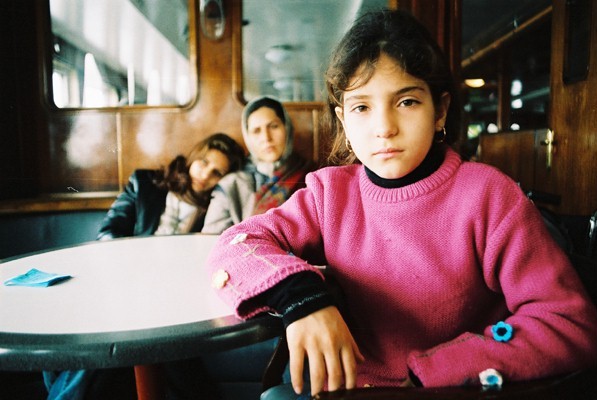
Mother's crossing
60' / 2003
Lode Desmet
The film tells the moving story of an Iranian woman and her two daughters on the run for their violent husband and father. A people smuggler takes them on a dangerous journey trough the marshlands that separate Turkey from Greece. At four o’clock in the morning Rojanne (11) – who cannot walk – is literally carried across the European border on the back of the smuggler.The documentary contains exclusive footage filmed by the smugglers themselves. It shows how they hide for the police – inflate their rubber boat – and paddle across the border river in almost complete darkness. People smugglers are invariably labelled as rock hard criminals – who make desperate refugees the victims of their greed and operate in vast networks. The truth is different. A fair number of smuggling operations are relatively small – safe and good value for money. Refugees do not see themselves as…
-
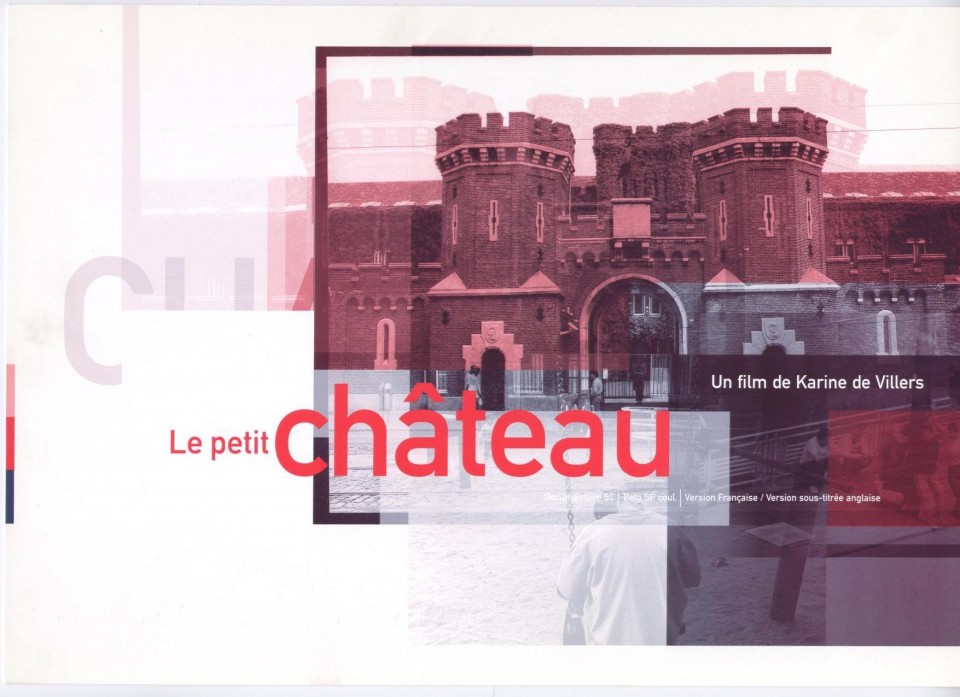
Le Petit Château
50' / 1999
Karine de Villers
“Le Petit Château”, in the heart of Brussels, place full of promises which welcome candidates seeking refugee status in Belgium. The hundreds of people languishing within its walls have begun to accept their internment as a way of life. Their life of transit and promiscuity lives them the margins of society. The long periods of waiting expressed by the internees and the guardians of that microcosm emphasize a society in turmoil. Credits Director : Karine de Villers Photography : C. Geens / P. Guilbert / R. Fromont / JM Vervoort Sound : R. Verthe / P. Mertens / M. Engels / C. Antoniadis Editing : Sandrine Deegen Production and Partners Production : Simple production Coproduction RTBF – Arte Belgique – Image Création Partners : With the support of Doctors without Borders and of Le Centre du Cinéma et de l’audiovisuel de la Fédération…
-
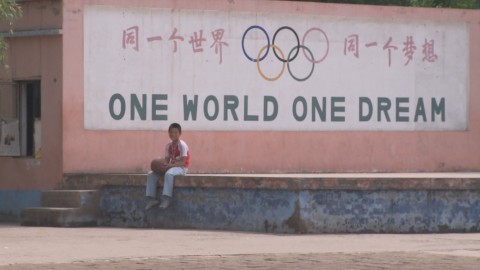
China, the new empire
3 x 52' / 2013
Jean-Michel Carré
The film CHINA, THE NEW EMPIRE presents, for the first time, a global picture of one century in the history of this country, from the Opium War until the forthcoming appointment of Xi Jinping as President of the People’s Republic. In October 2012, a crucial transference of power, occurring only once a decade, will take place in China : the renewal of the Communist Party’s governing bodies, and the designation of the next President of the Republic. An unprecedented factor is that this post will be held by a man who was not selected by either Mao Zedong or Deng Xiaoping. Another problem is that, victim of its narcissistic tendency, the West is unable to perceive with the required acuity that one of the most important changes that the world has witnessed in four centuries is taking place: the transference of power’s centre of gravity from the Atlantic to the Pacific. In a space of…
-
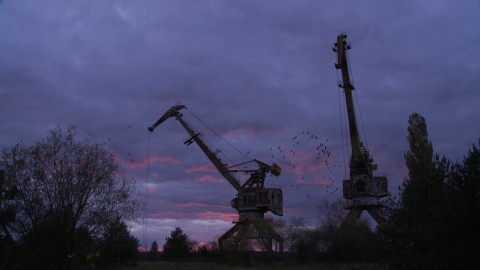
Chernobyl Forever
55'26'' / 2011
Alain de Halleux
25 years after the Chernobyl catastrophe, we have forgotten the danger of nuclear power. The consequences of this disaster are still not controlled. The latest circumstances in Japan show that up till now, we have not learned from our mistakes. Now, how will Japan cope with this major catastrophe? The atom has a long lifetime, whereas mankind has a short memory... Credits Scriptwriter and Director : Alain de Halleux Image : Colin Lévêque Sound : Félix Blume Editing : Anne Lacour and Linda Ibbari Music : Michel Berckmans Production and Partners Production : Simple Production et Crescendo films Development : Wip and la Fédération Wallonie-Bruxelles, RTBF, VRT, Arte France, NHK (Japan), VPRO (Holland), GEF, PROCIREP-ANGOA Diffusions : UR (SVT) (Finland), TSR (Switzerland), VRT Distributor : Terranoa (France) Festivals FIFF – Namur (Belgium) – selected…
-
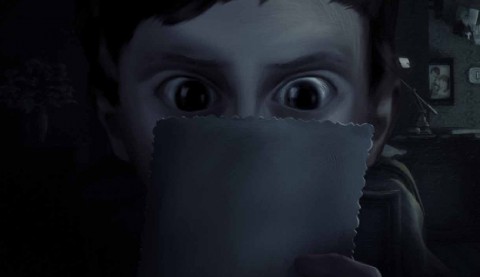
The Boy is Gone
68' / 2012
Christoph Bohn
A young boy pursues his dream of being a pilot and becomes instrumental to a nation’s nightmare. Based on his intense and personal memories, Christoph Bohn tells the story of the unknown German community in Belgium. A fascinating journey back in time through animated scenes, never showed archive footage and absorbing testimonies. Credits Directed by: Christoph Bohn Written by: Christoph Bohn & Frederik Nicolai Image : Philippe Thérasse - Claude Esselen - Tomer Stainberg - Frederik Nicolai - Christoph Bohn Sound : Yves Goossens Bara - Jasper Jan Peeters - Haim Meir Editing : Rémi van der Heiden - Peter Daniels - Frederik Nicolai Sound Mixing : Bart Jilesen Animation : Steven Hermans - Joris Bergmans - Bartel Bruneel - Lois van Baarle - Marieke Verbiest - Simon Dupuis - Dirk Henrotay - Alexis Horellou - Maxime Vannienschoot - Dave VanVerdegem - Julien…
-
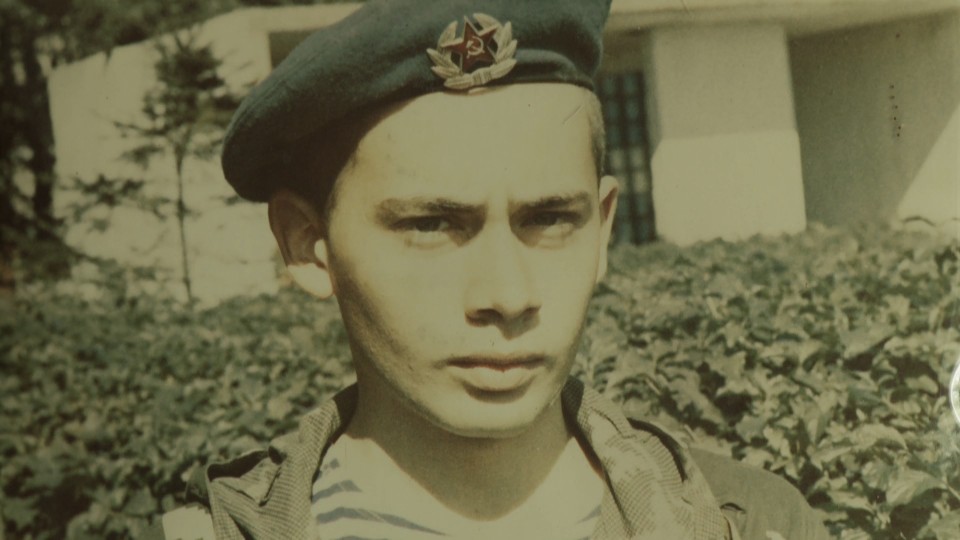
War Is Not a Game
52'/87' / 2010
Lode Desmet
This film is about one of the noblest enterprises mankind ever undertook : to civilize war by imposing rules on it : the Geneva Conventions. But is it possible to civilize war ? This film will explore the history of the conventions together with testimonies of soldiers on the ground who have or have had to put the rules of the Geneva Conventions into practice. The soldiers will come from the four corners of the planet because the film wants to be as universal as the Geneva Conventions claim to be. Credits Scriptwriter and Director : Lode Desmet Image : Hans De Bauw - Philippe Lavalette Sound : Cédric Mariotti - Arnaud Derimay - Martin Desranleau - Yannick Dox Editors : Anne-Laure Guégan - Linda Ibbari Music : Serge Laforest - Martin Rouillard Sound Mixing : Pascale Schaer - Sabrina Calmels Production and Partners Production : Simple Production - Lieurac…
-
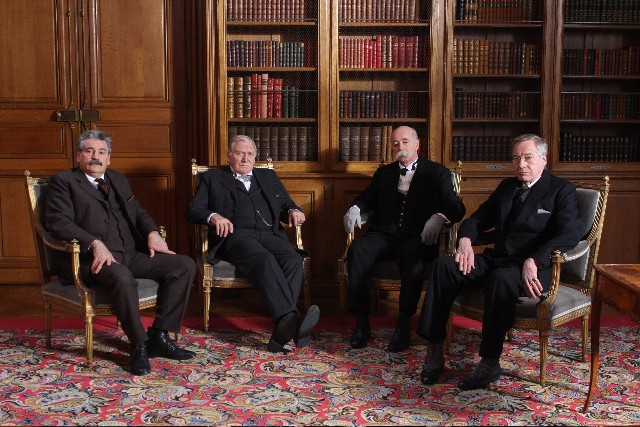
Paris 1919
94' / 2008
Paul Cowan
For six months in 1919, Paris was the capital of the world. The last shots had just been fired in the most devastating war of all time — and the old global order lay in tatters. Delegations from over 30 nations urgently descended upon Paris for the most ambitious peace talks in history. Their goal was to draft a peace treaty “for all time,” creating instead an embittered Germany already dreaming of retaliation — and contentious new entities like Iraq and Yugoslavia. In a compelling story that blends re-enactments with archival images, director Paul Cowan captures the dramatic cut-and-thrust of diplomacy, while evoking the extraordinary atmosphere of a metropolis returning to life. Credits Scriptwriters : Paul Cowan (based on the book 'Paris 1919: six months that changed the World' by Margaret Macmillan) Director: Paul Cowan Image : Jacques Sans Sound : Cory…
-
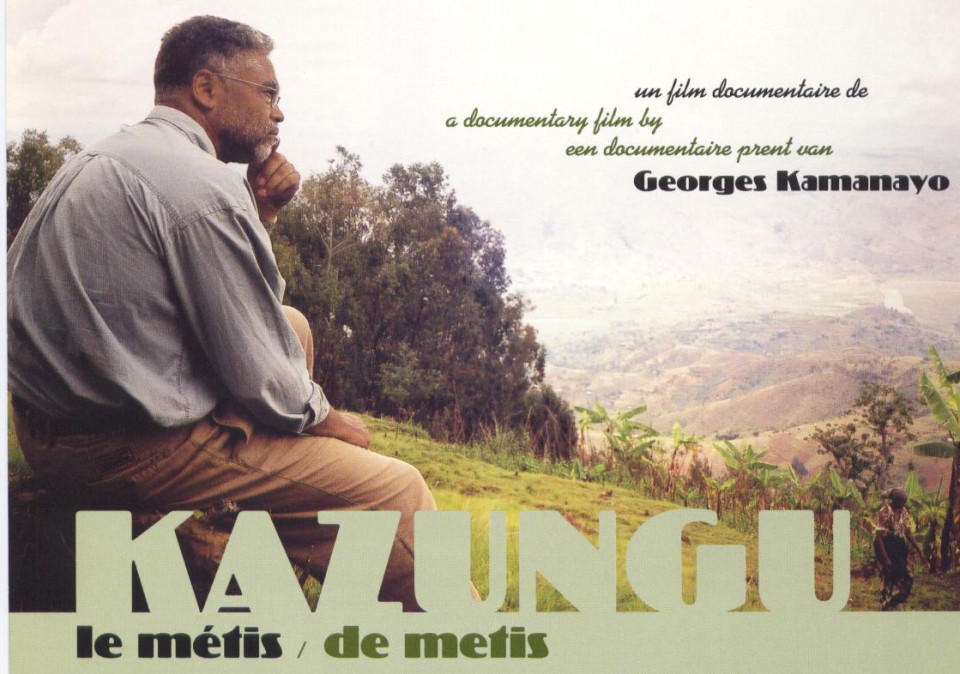
Kazungu, le métis
52' / 2000
Georges Kamanayo
The author, born from a clandestine mixed relationship and adopted by a Belgian family at the age of thirteen, started a quest to find his biological parents. Not only being a search for identity, the film also puts on trial the colonial spirit of Africa in the 50’s and the deep intolerance towards mixed relationships which were, at the time, scorned up. The children from these clandestine loves were denied all social recognition and were taken in by the Catholic Church who attempted to hide the fruits of sins. Without any family, roots, or reference to any culture, taken away from their mothers, unrecognised by their fathers, these children were displaced where ever they went. Georges Kamanayo Gengoux made the decision to try to find his mother in Africa and his father in France, to understand the clandestine love from which he is born, to accept it and to…
-
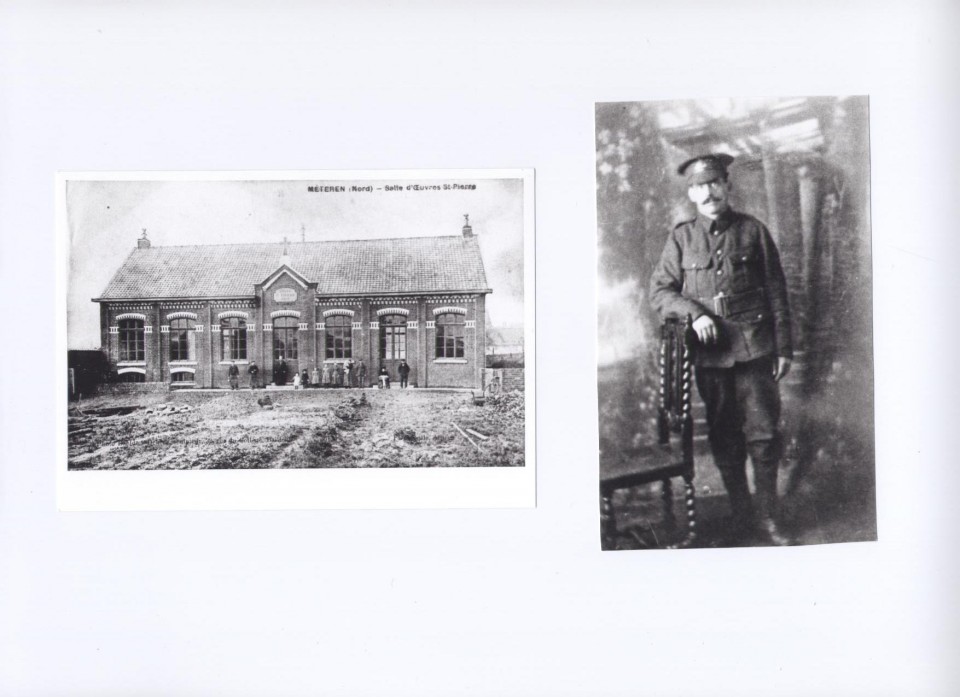
My Name is Wilkinson
26'56'' / 2000
Lode Desmet et Christine Borowiak
Ploegstraat, January 2000. A tractor brought to the surface the bones of a soldier who disappeared during the First World War. Patrick, an amateur archaeologist, identified the corpse : it appears to be Harry Wilkinson, a British soldier from the Lancanshire rifles in Manchester, who got killed during the night of the 10th of November in the course of an attack from the German troops. He is one of the 56.000 British soldiers who disappeared during the First World War. His descendants were rapidly found and his great granddaughter, Annette, accompanied with her daughter Georgia, decided to come to Belgium in order to find out more about this lost relative. The two girls met with various people who had witnessed the passing of Harry Wilkinson either directly or undirectly. They also visited the battlefields and some of the numerous British cemeteries of the region. A moving initiatory…
-
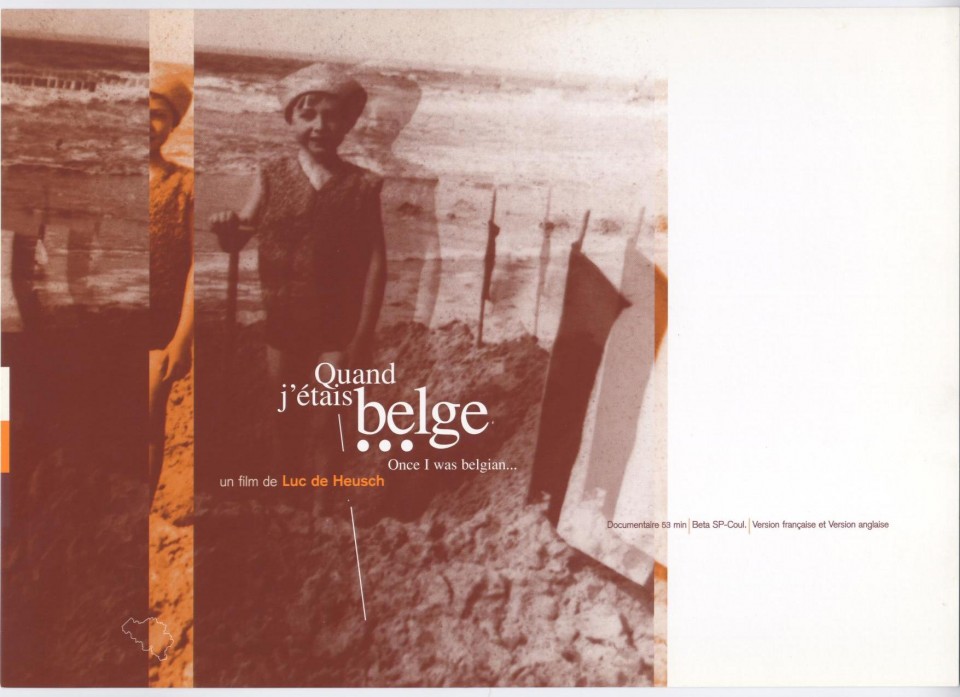
Once I was Belgian
53' / 1999
Luc de Heusch
Everything started in the summer of 1830, with the opening night of an opera which fanned the flames of revolution and the enthusiasm of the Flemish and the Walloons to fight against the authority of the king of Holland. Everything ended, a hundred and fifty years later, by the construction of a great invisible wall between the North and the South of the country and by the divorce of two communities, leaving the nation then torn apart and vulnerable. Between this period, a long series of conflicts and altercations crystallized the differences between the two linguistic identities... From a personal point of view and through his childhood memories, Luc de Heusch comments on the chaotic history of Belgium, from its origins to the present day. Will Belgium be dissolved into a federal Europe where similar situations are already apparent? Does Belgium still exist? Is the answer a bitter…
-
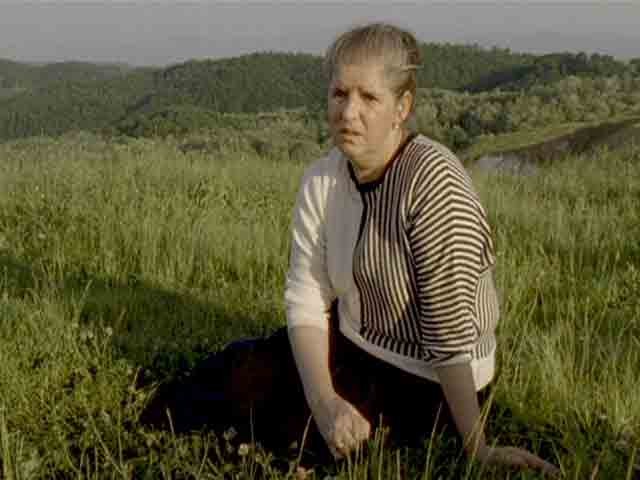
Au nom de l'humanité : le tribunal de La Haye
90 / 1999
Edina Ajrulovski
This film shows the concrete action of the tribunal and evokes its daily problems by allowing both magistrates and victims to talk. They come from Srebrenica, Brcko or Prijedor... What is genocide ? "Genocide aims at the destruction of an entire group of individuals for religious, political or ethnic reasons. Even if it does not succeed, it is enough that the act is committed with this intention. It can also be cultural..." reminds Fouad Abdel-Honeim Riad, judge at the tribunal of The Hague. And the historian Colin Kaiser, called as a witness for the prosecution, continues : "In all our societies, there are political parties, intellectuals who dream of cleansing their territory and their history. The war in Bosnia has shown how to go about it. And that it works." "Au nom de l'humanité, le tribunal de La Haye" follows the difficult exercise of the International Penal Tribunal (IPT)…
-
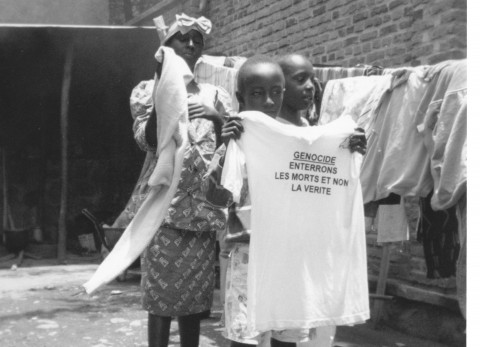
A republic gone mad, Rwanda 1894/1994
60'/73' / 1995
Luc de Heusch
In 1954, the ethnologist and filmmaker Luc de Heusch shot a film in Rwanda, illustrating the traditional relationship between Tutsi herdsmen and Hutu farmers in this ancient Central African Kingdom, then a Belgian protectorate. Exactly forty years later, more than five hundred thousand Tutsi men, women and children perished in the first genocide in African history. Contrary to what a misinformed public opinion was willing to believe, this tragedy was not the ultimate episode in a secular struggle between two hostile “ethnic groups”. This is what Luc de Heusch sets out to demonstrate in a historical film that pieces together the true face of this society, disfigured first by the colonial ideology, then by the republican regime. Hutu and Tustsi make up one nation whose inhabitants speak the same language, come from the same religion, share the same interdictions, and acknowledge the…
-
Algeria, the child's view
54' / 1999
Kamal Dehane
The film portrays war and terrorism in Algeria through the eyes of children. It moves between the painfull memories of the director, still a child in the 1960' during the Algerian War and that of the children of today who still live as a true fatality, the repetition of the slaughters and the horror in their country. Between past and present, the film questions the possibility of reconstruction in today's Algeria. Through the words of these algerian children, the film aims to fight preventively against the amnesia that always follows these dramas. It is a film for tomorrow, a film that might help future adults to understand what they have lived and avoid making the same mistakes again. Credits Director : Kamal Dehane Image : Semcheddine Touzaine - Pierre Gordower - Othomane Abbane Sound : Pierre Mertens - Farid Korteby Editing : Marie-Hélène Mora Sound mixing : Jacques…
-
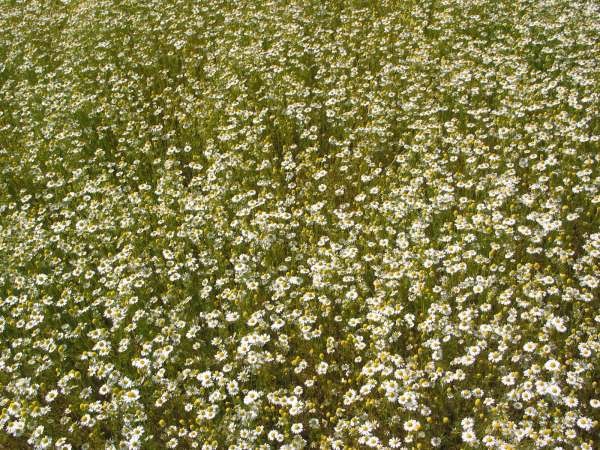
Plant wars
3x52' / 2004
Basile Sallustio
PLANT WARS - series 1 to 3 - 3x52' Since the beginning of time, human beings all over the world have made use of plants for healing purposes. These three documentaries tell the story of medicinal plants. Two-thirds of the Earth's population still rely on some form of traditional medicine. In Africa, Asia and Latin America, complex and subtle medical knowledge has survived to this day, handed down via comprehensive oral traditions. Meanwhile, in the West, with the development of medicinal chemistry and universal access to health care during the first half of the 20th century, traditional healing practices and the use of medicinal plants gradually came to be seen as esoteric pastimes. After a gap of almost a century, the West is rediscovering the benefits of plant medicine. As a result of the new recognition that medicine needs to centre around the person as a whole, we are taking…
-
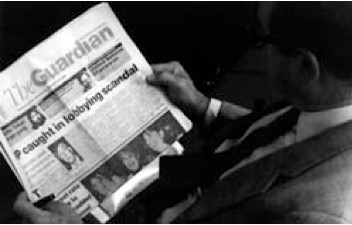
The Merchants of influence
52 / 1995
Kamal Dehane
Situated at the intersection of economic interests and political decision, lobbying intrigues as much as it fascinates. It seems mysterious, and for that reason contributes to all sorts of fantasies. In Brussels, the lobbies are doing a thriving business. Their number, their diversity and their methods have made the European capital a paradise for groups with world-wide interests. Starting from a double-pronged report-the existence of a unique phenomenon towards which a bundle of social concerns converge -the film responds to a series of simple questions : who are these lobbyists? How do they act? What interests do they defend, with what means? And to lay out the whole palette of lobbies and their techniques, lobbyists and European parliamentarians take part to respond to the fundamental question : is lobbying a menace or an asset to the proper functioning of our…
-
Putin is back
80' / 2014
Jean-Michel Carré
World governments are all turning a blind eye to events occurring in Russia today. Muted silence and vague gesticulations are their only response. However, their attitude changes when negotiations for contracts with Russia appear on the agenda. On the whole, the world is acting as if in Russia nothing special was really happening. In 2007, we made « The Putin System ». Broadcast in more than 40 countries it showed how an insignificant KGB lieutenant, Vladimir Putin, had methodically climbed the ladder to power becoming, after 25 years in the shadows, the president of Russia for 8 years. His two mandates saw the rebirth of Russia as a world power combined with an exacerbated sense of national pride within an increasingly authoritarian regime. After 8 years and two mandates as president, Vladimir Putin becomes Prime Minister to President Dmitri Medvedev, his chosen dauphin, for 4…
-
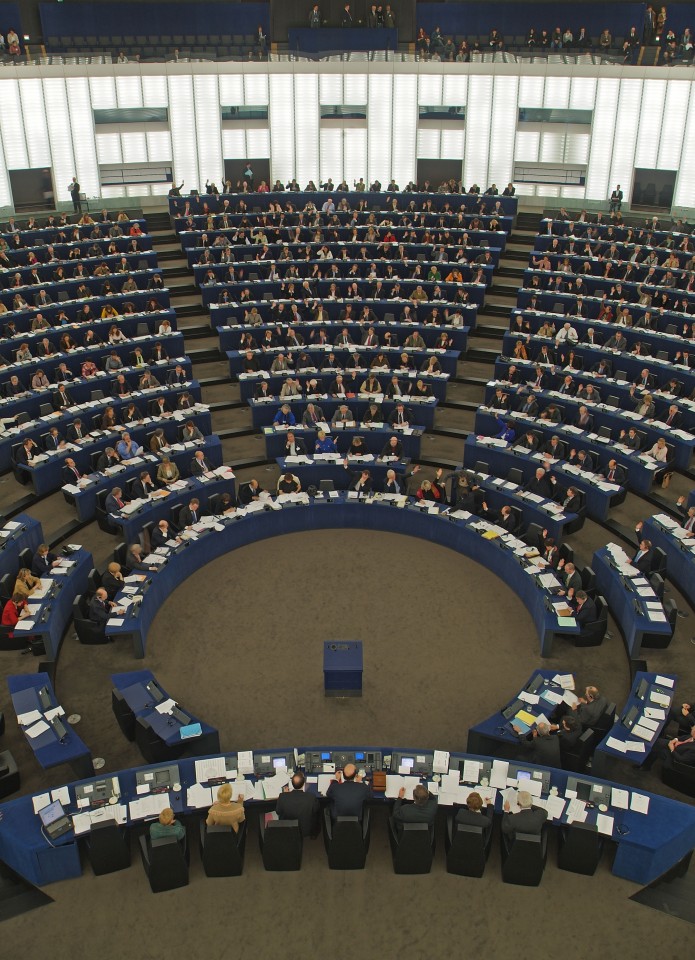
The Most Difficult Job in the World
52'/90' / 2006
Sergio Ghizzardi
The world is changing and Europe is in a state of crisis. At the top of it, José Manuel Barroso, The President of the European Commission. He has one of the most difficult jobs in the world today : managing a government with 25 Commissioners from 25 different countries. Mission Impossible? In 2005, both the French and Dutch said NO to the project of a European Constitution, and the 25 member states appeared to be incapable of agreeing on a budget for Europe. Moreover other problematic issues were added to the list : the Bolkestein Directive, the conflict over Chinese textiles, and the Hewlett Packard affair. And yet, one by one, José Manuel Barroso stepped around the obstacles, and sought out solutions that would allow Europe to evolve. "The Most difficult Job in the World" shows us the inside view of the people and processes involved in the daily political task of…
-
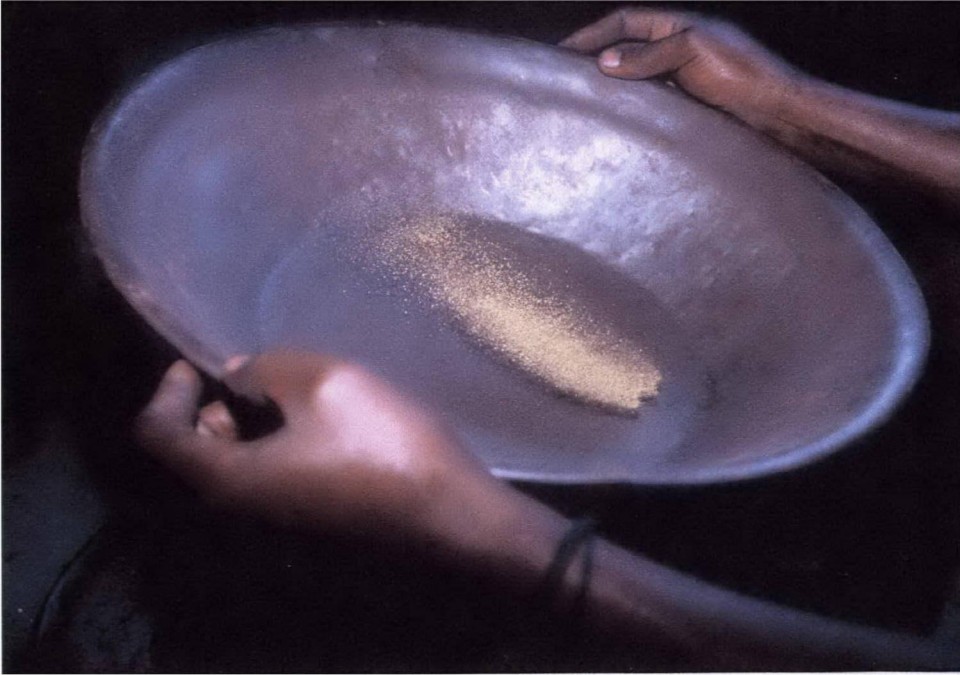
L'or noyé de Kamituga (The Drowned Gold of Kamituga)
52'/70' / 2005
Yvon Lammens
Starving on a gold mining : Congo illustrated by one single city. Kamituga, a mining city in the East of Congo, symbolizes the tragedy of the country's economic history. Plundered facilities, stolen geological maps,... The period is over when SOMINKI provided his workers with an accommodation, schools, health care in exchange of gold mining and cassiterite mines of Kamituga. Caught in a crossfire between the different actors of the conflict, misery, violence and exploitation are now the daily life of the former miners and their families, regardless they try to keep any hope... The film, tracing Kamituga's history, returns to the basics of the war : it reminds the hunger of the mining societies, the lust of the Rwandese neighbor and his local allies, the weakness and the contractions of Kinshasa's power. The film also shows the abandoned resistance of the workers, where the former…
-
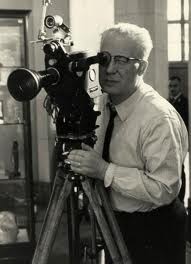
Carnet d'images, Henri Storck
15'30'' / 2006
Luc de Heusch
Film directed by Luc de Heusch using images shot by Henri Storck between 1974 and 1992 in Super 8 for his own pleasure. Credits Author and Director : Luc de Heusch Image : Henri Storck Sound : Luc Thomas Editor : Julie Naas Production and Partners Production : Simple Production Partners : Henri Storck Foundation and Fédération Wallonie-Bruxelles Dvd Original version : French
-
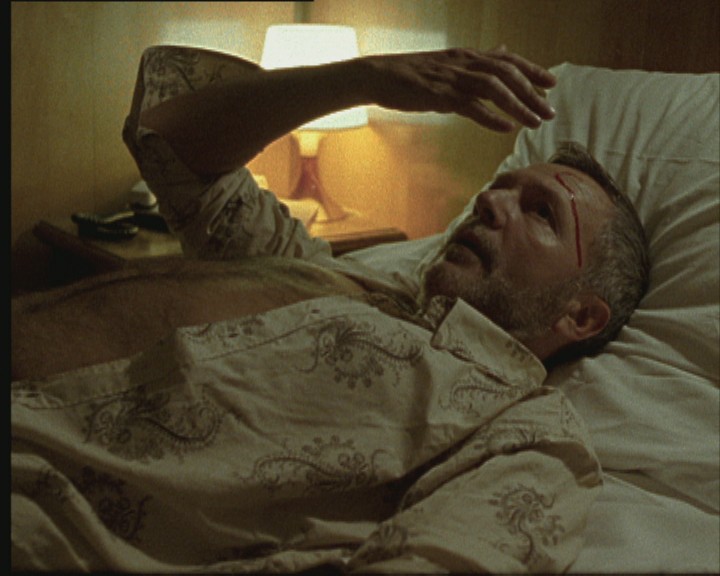
Fragments sur la Grâce
101' / 2006
Vincent Dieutre
A filmmaker attempts to immerse himself and his team in the incandescent universe of Port-Royal and Jansenism. Baroque readings, landscapes, interviews, little by little the historical quest becomes dizzy. From precious fragments into mystical convulsions, the whole film takes a sudden turn, bumping irremediably against the unanswered question of "Grace". Credits Fiction - Drama 1h41’ – colour – 35mm – dolby SR Scénario and direction : Vincent Dieutre Image : Jeanne Lapoirie - Jean Marie Boulet Sound : Benjamin Bober Editing : Dominique Auvray Sound Editing : Gervaise Demeure Production Celluloid Dreams (Paris) & Simple production Partners With the participation of Centre National de la Cinématographie et du Centre du cinéma et de l’audiovisuel de la Fédération Wallonie-Bruxelles Festivals Flanders International Film Festival Ghent…
-
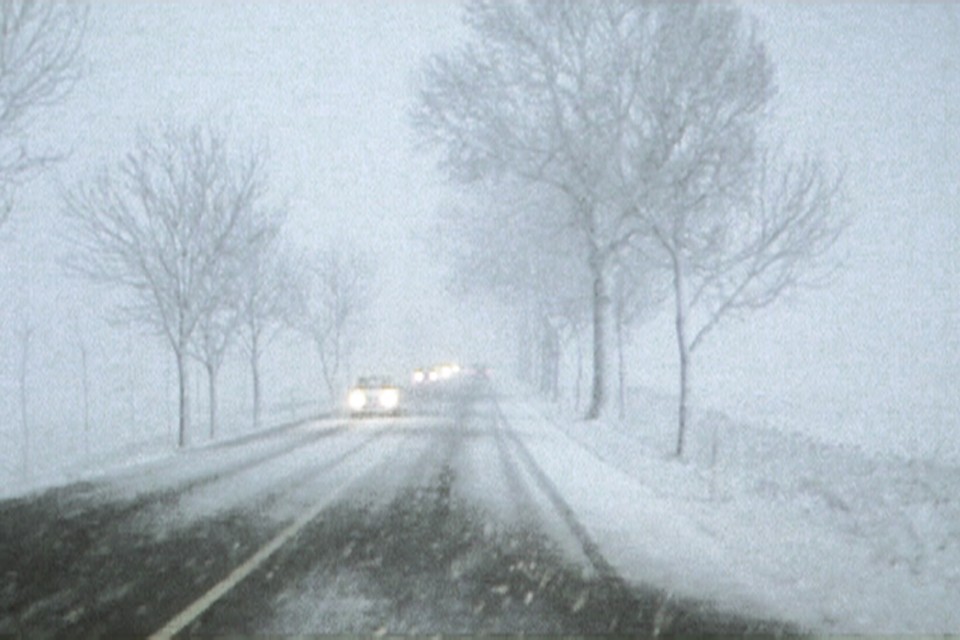
Mon Voyage d'Hiver (My Winter Journey)
103' / 2003
Vincent Dieutre
Vincent is forty years old. Haunted by the figure of Schubert, this cultured and fragile homosexual embarks, with his godson Itvan, on a final beautiful journey : His Winter Journey (Voyage d’Hiver). Both man and teenager cross a snow-covered Germany, beaten by the winds and filled with ghosts. Between wounds of the past and vast spaces of reunification, the man tries to change Itvan’s view of these cities, these landscapes,... calling in turn upon history, poetry, music,… Credits Duration : 103’ Scriptwriter and Director : Vincent Dieutre Original language : French Color – 3/4 - 35 mm - 1,66 - Dts SR Image : Benoît Chamaillard and Jean-Marie Boulet Editing : Dominique Auvray Sound : Patric Chiha Sound editing : Marie Tisserand Sound mixing : Nathalie Vidal and Bernard Gabus Production and Partners Production : Les Films de la Croisade Coproduction :…
-
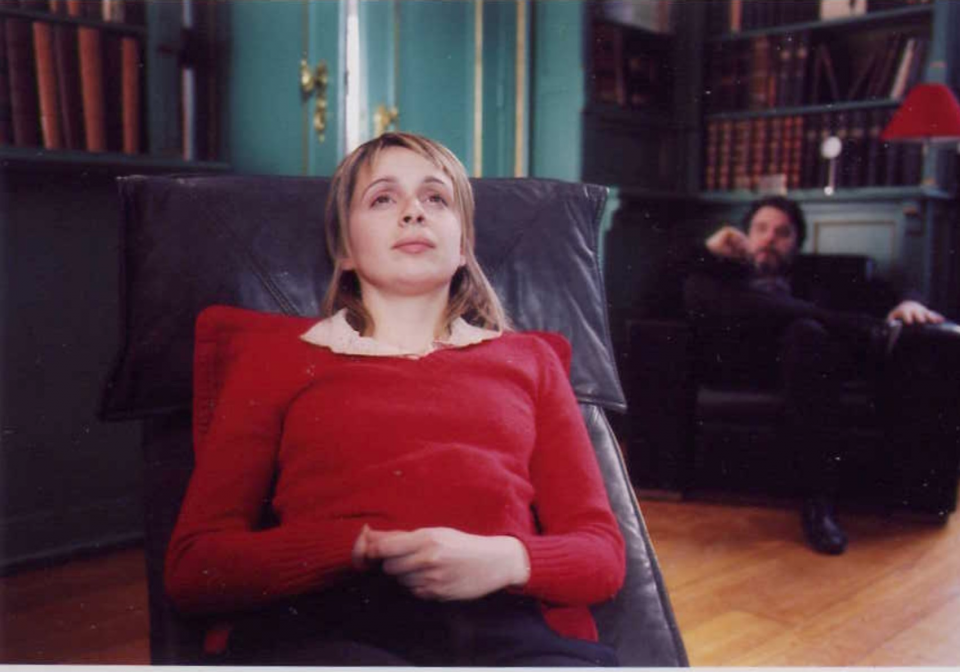
Les Hommes de ma vie (The men of my life)
12'20'' / 2003
Karine de Villers
"What I wish, is a man. I do not want thousands of them, but just one, but the good one. Is it so hard to get?". The short film narrates a meeting between a young woman and her psychiatrist, behind closed doors where only imagination and fantasy are allowed to go in. Credits Fiction Scriptwriter and director : Karine de Villers Images : Diego Martinez Vignatti Sound : Gilles Laurent Interpretations : Anne-Cécile Vandalem - Patrick Descamps - Fabio Zénoni - David Pion - Gaëtan Wenders - Etienne van der Belen Editor : Gervaise Demeure Music : Pierre Gillet - Jean-François Bodart - Olivier Bodson for Dame Blanche Format : 35mm Production and Partner Production : Simple Production Partner : Fédération Wallonie-Bruxelles Dvd French version
-
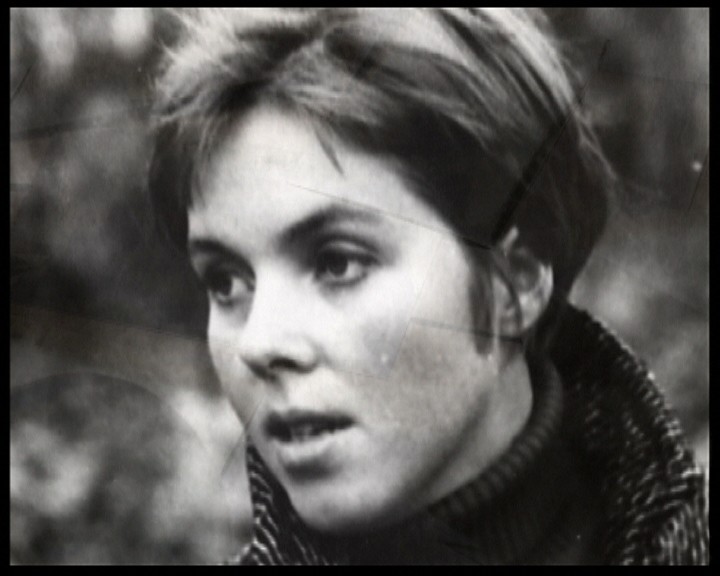
How I See Her
48' / 2001
Karine de Villers
This documentary film draws, with a lot of love and tenderness, the portrait of a young Danish woman in the 1960-70s. Her name was Anne-Marie Sikker Hansen. She accidentally died when her daughter, the film director, was fourteen years old. She left her two daughters behind, her diary, some letters, some of her paintings, some film footage and her life experience which is also that of a whole generation of young adults searching for their own identity. Images from May 68 in Copenhagen, others from daily life in a community in those days... Everything is there : the rupture with the traditional family, women's emancipation, the separation, the fulfilment... but what about the children? This documentary accounts for a time (the 1960-70’s) which seems to be now so far away from us. Credits Director : Karine de Villesr Image : Dominique Henry - Catherine Montondo - Karine de…
-
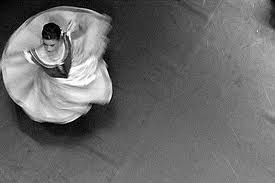
Fanny Gaïda, a Star and I
59' / 2001
Mathilde Mignon
Fanny Gaïda, a ballerina of the Opera de Paris, was filmed during the last year of her career by her childhood friend and filmmaker Mathilde Mignon. The chosen ballets are those in which the talent of this gracefuland perfectionist artist are best expressed : “Giselle”, the quintessence of the great classical ballet on pointsand “Sweet Lies”, a contemporary choreography especially crafted for her by Jiri Kylian. By putting together family films, shootings of the daily work of the dancer, collective classes, rehearsals with a piano accompaniment and public performances, Mathilde Mignon has drawned an intimate portrait of a whole life dedicated to dancing. In 1973, Fanny Gaïda entered “L’Ecole de Danse de l’Opéra” and was hired in 1978 by ”Le Corps de Ballet” at the age of 17. Rudolf Noureev gave her the soloist roles of Don Quichotte, Raymonda, Swan Lake,…
-

Truck
7'30'' / 1999
Thomas Cheysson
Paul is a truck. Georges is a truck. The young man is a hitchhiker. He travels with Paul. The hitchhiker is a young woman. She is on the road with Georges. Spatters... contorted voices with Hertzian transmission. The informations go through the C.B. They tell lies and are distorted. A little nasal voice stimulates by turns Paul and Georges' imagination. They transpire, they trash about, they struggle, prompted by the small spatters which they may recognize. The young girl and the hitchhiker get into the game. They are driving. They stop. Credits Director : Thomas Cheysson Image : Jean-Claude Neckelbrouck Cameraman : Bernard Delville Sound :Pierre Mertens Editor : Marie-Hélène Dozo Sound mixing : Thomas gauder Actors : Daniel Hanssens, Erico Salamone, Daniel Ajenser and Sandrine Laroche 35 mm – mono and Dolby stereo Production and Partner Production : Simple…
-
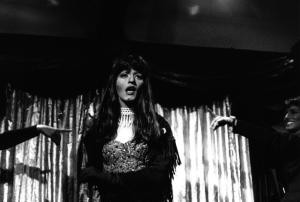
Les Amis du Plaisir, Thirty Years On
44' / 1995
Luc de Heusch
Thirty years ago, the little village of Moulbaix and its 500 residents, in the Ath Region (Western Hainaut) hosted Luc de Heusch and his team, who came to film their work, hobbies and their passion for theatre. In autumn, the members of the Dramatic Art Society, also called “Les Amis du Plaisir”, rehearsed for a play staged for the spring – and for a numerous audience. The first movie, called “Les Amis du Plaisir”, has been praised as a classical movie in the field of ethnology and sociology. Today, thirty years later, Luc de Heusch returns to the place and meets again the “alumni”, Claudine and Joseph, Monique and Roger, Paula and Adrien, Christian… to celebrate in their company and with a new generation of actors, the centenary of the Society founded in 1895, the year that cinema was invented. This new version broadens the historical background by mixing past and…
-
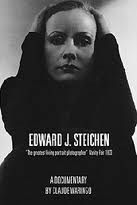
Edward J. Steichen
56' / 1995
Claude Waringo
Edward J. Steichen is a world-known photographer. A U.S. immigrant when he was 18 months old, he takes his first photo in 1895, at the age of 16. On the banks of Lake Michigan, he dreams to lead an artist’s life. Six years later, he meets Rodin. He presents Picasso in his own New York gallery and reinvents modern fashion and war photography. He mounts the « Family of Man » exhibition seen by over 9 million visitors. For five years at the end of his life, he films a tree behind his house. He was, above all else, the most famous portrait photographer in the world. Fiche technique Scriptwriters : Claude Waringo - Frédéric Fichefet Director : Claude Waringo Image : Jean-Louis Sonzogni Editing : Frédéric Fichefet Sound : Carlo THOSS Music : Jeannot Sanavia Production Production : Simple Production - Samsa Film - Lieurac Productions - RTL - RTBF - BRTN -…
-
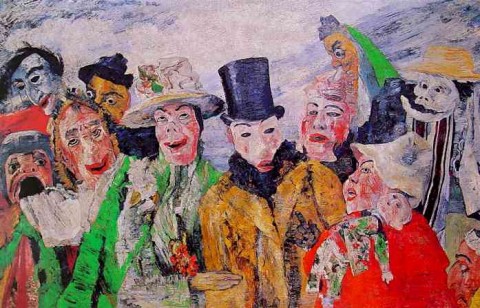
I'm mad, I'm foolish, I'm nasty (A self-portrait of James Ensor)
55' / 1990
Luc de Heusch
The film-maker and ethnologist Luc de Heusch met James Ensor, the famous painter from Ostend, shortly after the war in his house in Ostend, currently called the “Ensor Museum”. James Ensor was 80 years old and was sitting under an enormous painting with bright barbaric colours he had made more than half a century before : “L’Entrée du Christ à Bruxelles” (Christ’s Entry into Brussels). This movie about James Ensor is not a documentary but a kind of novel movie transported by the intensity of the painter’s works and his passion for language. Credits Duration: 55’ 35 mm – color – format 1,66 – stereo/mono Director : Luc de Heusch (with the help of Henri Storck) Texts : James Ensor First director assistant : Pierrot de Heusch Image : Jean-Claude Neckelbrouck (Cameraman) – Michel baudour (Photography) Sound : Jean-Claude Boulanger Editor: Suzanne…
-
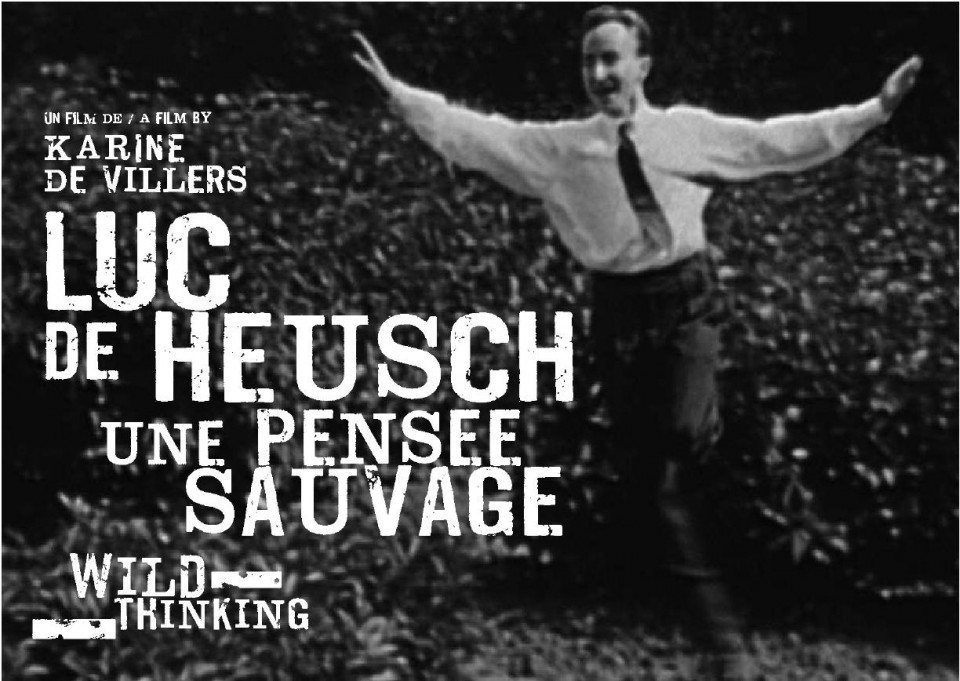
Luc de Heusch, Wild Thinking
50' / 2007
Karine de Villers
“Dogulls fly away for a reason?” “Why are we here?” “I think therefore I Am” but why? Thanks to his questioning of the world, the ethnologist and film-maker, Luc de Heusch allows us to enter his thoughts, thoughts that are both scientific (structuralist) and poetic (surrealist). Building bridges between different cultures, his films and books attest to the diversity that exists within the realm of reality, and this diversity allows the very distinct worlds of art, war, cooking, theatre, magic and love to communicate with one and other with incredible ease. Credits Director : Karine de Villers Photography : Aliocha Van der Avoort Sound : Cosmas Antoniadis Editing : Philippe Boucq Sound Editing : Julie Brenta Mixing : Benoît Biral Music : Georges-Elie Octors Voices : Barbara Sylvain (French) and Catherine Montondo (English) Production and…
-
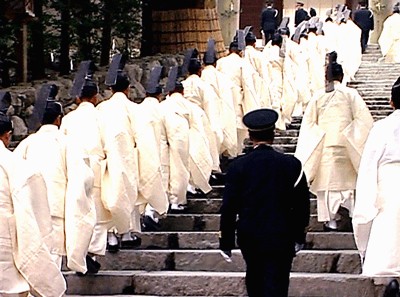
Pilgrimages
3x52' / 2001
Fransi De Villar Dille & Oranne Mounition
Beyond cultures and religions, pilgrimages represent an important time in the inner lives of believers. This series of three documentary films is dedicated to them. It is centred around three questions: "What is the common symbol that is within the different pilgrimages in the world? What motivates the pilgrim to travel on roads and what is his/her experience? What are these phenomena's political and economic stakes?" The directors share with us their personal vision on the subject, sensitive and close, making the man, the pilgrim, a reference point, filmed with respect and the wish to understand his progress. SHARED PATHS This first film takes us to different holy places on the planet that constitute many destinations for pilgrims of various confessions : Croagh Patrick in Ireland, Rocío in Spain, Isé in Japan, Bedni in the Himalayas, Varanasi, Andhra Pradesh, Timuralaï, and…
-
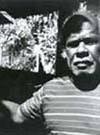
Folles Mémoires du Caillou
59' / 1997
Mathilde Mignon
Nouville in the bay of Nouméa, New Caledonia. Over there, the French prison and the psychiatric hospital have been surrounded by water. Today, Nouville is linked to Nouméa through a dyke and still encloses those two institutions, which now are side by side to a touristic complex and a Melanesian kanak squat. The psychiatric hospital is called Albert Bousquet, the grandfather's name of the director, who was the main doctor of the hospital during the fifties and who nearby committed suicide on a small beach. The film recounts this single exile story and questions the complex and shattered past of this island. Credits Author : Mathilde Mignon Photography : Philippe Costantini Sound : Olivier Hespel, Jean-François Gosselin Editing : Anne Weil Production and Partners Producer : Les Films d'Ici Partners : Simple Productions, La Sept Arte, RFO, RTBF, CNC, Procirep,…
-
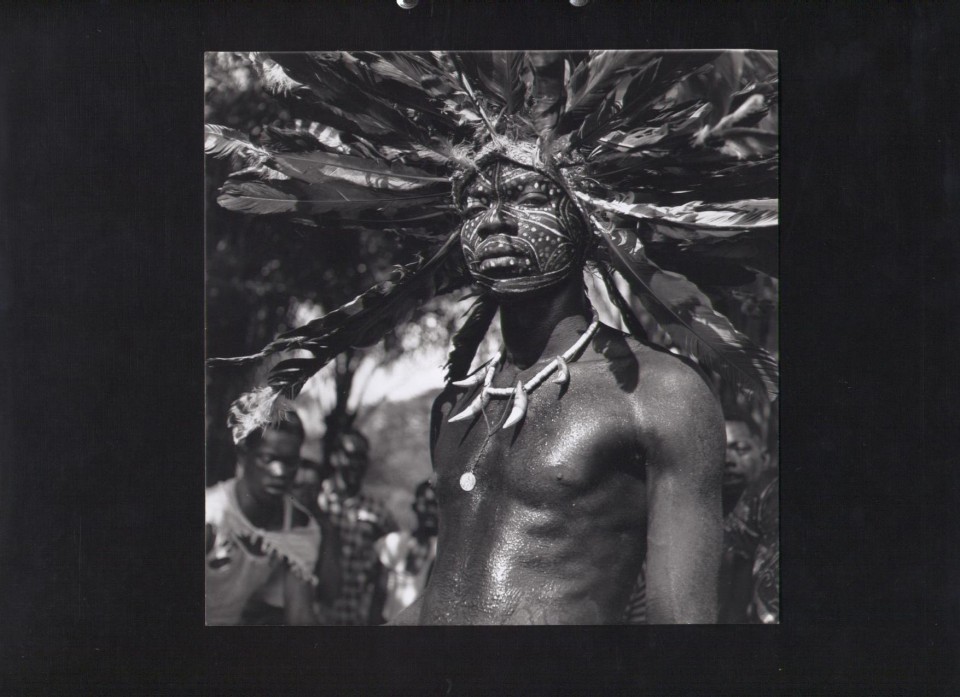
Hamba Celebration
52' / 1955
Luc de Heusch
In 1954, during an ethnographic mission in Belgian Congo, Luc de Heusch fitted with a small Bell & Howelle camera and with one of the first magnetic ring sound recorder, filmed the daily ceremonial life of a village in a Congolese forest in the former province of Kasaï. The movie's first version, "Fête chez les Hamba" has been showed in 1956 at the 'Musée de l'Homme' in Paris during the First International Forum of the Ethnographic Film organized at Jean Rouch's initiative. In 1997, Luc de Heusch went about the image and the sound restoration thanks to the help of the RTBF, the Cinémathèque Royale de Belgique and the FOBRA. This new editing is the definitive version of one of the very rare evidences of the traditional social life in an African community during the Belgian colonization. Credits Director : Luc de Heusch 16mm - B&W - 52' Script : Luc de Heusch Image : Luc de…
-
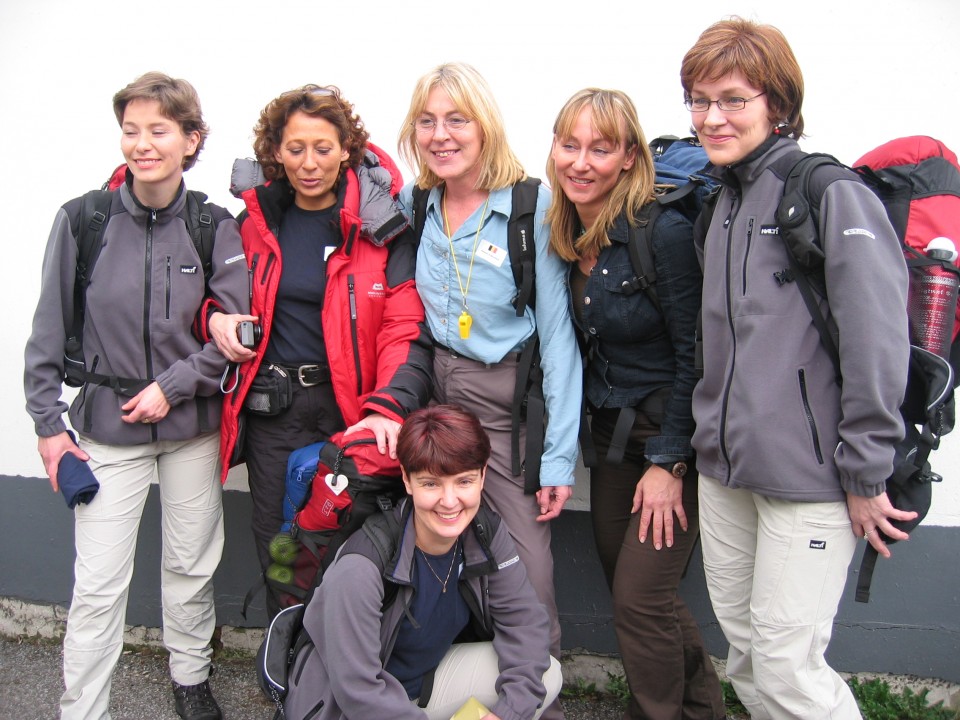
Beyond the Summits
55' / 2004
Johannes Bucher
February 2004. Eight European women, mothers with children, want to conquer the highest summit of the America's : the 7000 meters Mount Aconcagua. But it’s not an all-day dream. All these women share one common past : they have fought and overcome breast cancer. Since their illness, they have fought against the label of being a patient forever. Now, the mountain is the antidote. Especially for one of the ladies, with whom the cancer reoccurred only three months ago. Credits Director : Johannes Bucher Script : Ariane Mertens Photography : Hans de Bauw – Xavier Istasse Music : Pierre Gillet (Dame Blanche) Editing : Ivan Gorré Mixing : Michel Goossens Production and Partners Production : Simple production Coproduction : RTBF –VRT – Danish Broadcasting Corporation – Witte Nunatak Partners : YLE – TV1 –RTSI and the support of Vlaams Audiovisueel Fonds…
-
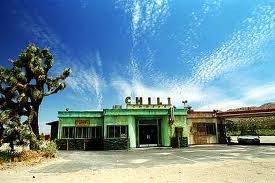
Gas Station
6x26' / 2006
Luc Vrydaghs
Gas Station takes you on a world trip and tells its tale from the confines of small gas stations ; a concept that acts mainly as a tool to connect stories and to discover different lifestyles, cultures and people. By observing everyday-life in and around a filling station and through conversations with owners, personnel and costumers, we discover a great deal about the country itself. The gas station works as a microcosm for the country it is located in. Episode 1 : Gas Station - Arizona outlines the attitude of conservative American whites in respect tot the illegal Mexican migration.Episode 2 : Gas Station - Punjab deals with the theme of sexual exploitation. It focuses on local girls who fall prey to NRI's who lure them into fake marriages.Episode 3 : Gas Station - Australia focuses on the collaboration between Aboriginals and whites who were hired to run finances in Aboriginal…
